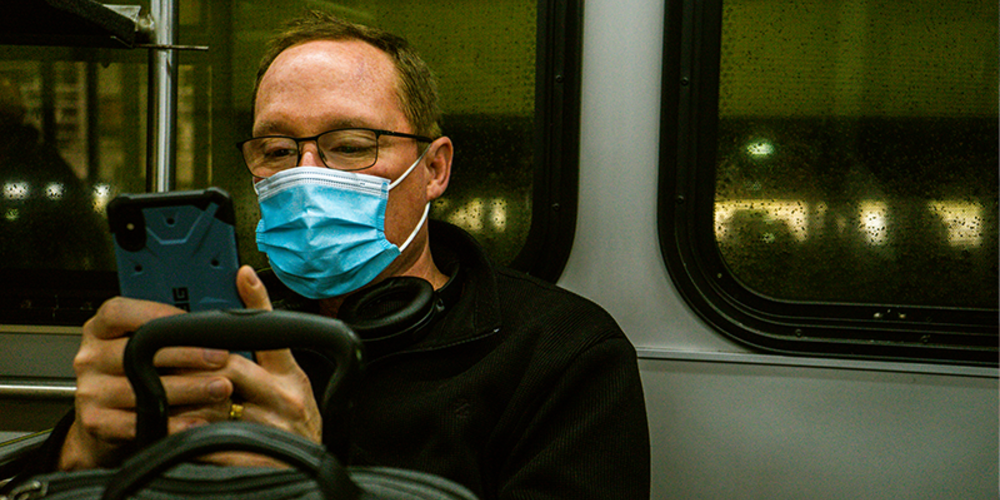With the Victorian state government recently unveiling its roadmap out of lockdown, Victorian businesses now have a timeline for re-opening and for when vaccinated employees can start returning to the office. However, the release may have raised more questions for you than it provided answers.
To answer some of these burning questions, we hosted a webinar last month with a specialist employment and safety lawyer, to discuss the legalities of what Paul referred to as ‘one of the most critical employment and HR issues we’re going to deal with for decades’.
While the webinar predominantly focused on considerations for employers when developing workplace COVID-19 vaccination policies, it provided some information we thought useful for employees working in industries where vaccination is not mandated (by the government) to be aware of.
Disclaimer: This information is general in nature and does not take into account your individual situation. You should consider whether the information is appropriate to your needs, and where appropriate, seek specific advice from a legal professional.
Can employers create a mandatory vaccination policy?
At this stage, there isn’t any law or legislation to permit a mandatory vaccination, but there also isn’t any law or legislation to prohibit it. This means that employers are within their rights to mandate vaccinations as long as it’s lawful and reasonable to do so. The Occupational Health and Safety Act in Victoria has strict duties placed on employers to ensure a safe workplace.
Businesses will need to take many variables into consideration, such as:
Is it a public facing role the employees have?
Is it someone who works at home permanently?
Is social distancing in the workplace possible?
What is the extent of community transmission in the location? For example, it may not be reasonable if the employee is in Tasmania VS Melbourne or Sydney at the moment
If the employee is having trouble accessing the vaccine
Whether the virus is spreading in a particular geographical area
Whether the workplace has adequate ventilation
Will wearing PPE alone be sufficient in guarding against COVID
OHS duties
Employers can be sued for negligence or workers compensation of an employee gets COVID from the office
Paul said: ‘Ultimately if a workplace has people who work and congregate together in shared spaces, it’s probably going to be a lawful and reasonable direction at some point in the near future to have employees vaccinated.’
Will employees have to disclose their current vaccination status?
An employer can ask the employee to physically present their status (their COVID certificate or immunization history). They can’t legally keep it on the database without the employee’s consent, as this would be in breach of the Privacy Act.
Employees may be presented with a privacy statement which explains why the employer is collecting information around vaccinations. This is likely to cover things like:
The purpose of the collection of the vaccination status
Consequences if the employee refuses to consent to the collection
How the employer may use or disclose that information
How the employee can access their own personal information that’s recorded by the employer
How the employer can seek correction of that personal information
How employees can make complaints to the office of the information commissioner of a breach of the privacy principle
What may happen if the criteria for mandated vaccination is met and an employer makes COVID vaccination mandatory and an employee refuses?
If the mandate is lawful and reasonable and it’s deemed necessary for the policy and an employee simply refuses to comply, that would be a disobedience direction, putting aside discrimination, that would be a valid reason for dismissal, unless that employee has an exemption for getting the vaccine.
What are some of the possible exemptions for not getting the vaccine?
This is likely to develop more in the future as legislation and polices change. At the moment, possible exemptions are:
Disability – it’s likely that an employee will need to provide their employer with medical evidence to support this.
Religious belief or activity – this is separate from philosophical or personal belief. Evidence of religion may need to be presented.
Political opinion – this may not be relevant, but it’s a possibility while policies are being developed.
Can an employee refuse to attend a stakeholder meeting or office if they’re not aware that everyone attending is fully vaccinated?
Simply put, no. If it’s part of the job, a refusal to do so in the belief that there are people there who are unvaccinated or could be unvaccinated, is probably a disciplinary matter and probably would be disobedience to lawful and reasonable direction to perform the tasks of their role.
In extreme cases, such as sending someone to a place that’s been an exposure site, that would be different because that would evoke occupational health and safety obligations.
The webinar covered more questions aimed at employers, but we hope that these questions and answers have informed you around workplace vaccinations.
If you're interested in watching the full webinar, you can watch it here.
Here's a list of the helpful resources Paul mentioned during the webinar:
Disclaimer: This information is general in nature and does not take into account your individual situation. You should consider whether the information is appropriate to your needs, and where appropriate, seek specific advice from a legal professional.





.png)
.png)
.png)


.png)




.png)